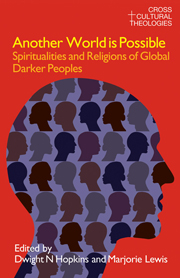Book contents
- Frontmatter
- Dedication
- Contents
- Acknowledgements
- Contributors
- Introduction
- Part I India
- Part II Japan
- Part III Australia
- Part IV Hawaii
- Part V England
- Part VI South Africa
- Part VII Botswana
- 10 HIV+ Feminisms, Postcoloniality and the Global AIDS Crisis
- 11 Soliloquy of a Troubled Heart: Trying to Make Sense of Senseless Femicide
- Part VIII Zimbabwe
- Part IX Ghana
- Part X Cuba
- Part XI Jamaica
- Part XII Brazil
- Part XIII USA
- Endnotes
- Select Bibliography
- Index of Subjects
- Index of Names
10 - HIV+ Feminisms, Postcoloniality and the Global AIDS Crisis
from Part VII - Botswana
- Frontmatter
- Dedication
- Contents
- Acknowledgements
- Contributors
- Introduction
- Part I India
- Part II Japan
- Part III Australia
- Part IV Hawaii
- Part V England
- Part VI South Africa
- Part VII Botswana
- 10 HIV+ Feminisms, Postcoloniality and the Global AIDS Crisis
- 11 Soliloquy of a Troubled Heart: Trying to Make Sense of Senseless Femicide
- Part VIII Zimbabwe
- Part IX Ghana
- Part X Cuba
- Part XI Jamaica
- Part XII Brazil
- Part XIII USA
- Endnotes
- Select Bibliography
- Index of Subjects
- Index of Names
Summary
The link between inequality, poverty and gender discrimination on the other hand is very strong.… The starting point for an adequate response is the understanding that any bid to halt the AIDS epidemic has to include determined efforts to eradicate poverty.
(UNDP 2000: 53, 56)Introduction: Have You Heard Me Today?
The subject of HIV+ feminisms and postcoloniality in the global AIDS crisis is appropriate for several reasons. In 2003 the United Nations Secretary General, Kofi Annan, set up a commission to investigate the relationship between women, the girl and HIV and AIDS. The resulting Southern African based report pointed out that women and girls were highly affected and infected by HIV and AIDS in the areas of the spread of the disease, care-giving, stigmatization and access to treatment. Indeed, it has been found that “young girls and women 15–24 years of age have 2–8 times higher infection rates than men of the same age” (Weinreich and Benn 2004: 27). Following the UN commission, the 2004 AIDS epidemic report noted that:
Around the world, the epidemic's escalating impact on women is occurring in the context of profound gender, class and other inequalities. This is also evident in industrialized countries in Western Europe and North America, where about one quarter of people living with HIV women are, and where HIV has become increasingly lodged among women who belong to marginalized sections of populations, including minorities and refugees.
- Type
- Chapter
- Information
- Another World is PossibleSpiritualities and Religions of Global Darker Peoples, pp. 145 - 159Publisher: Acumen PublishingPrint publication year: 2009



